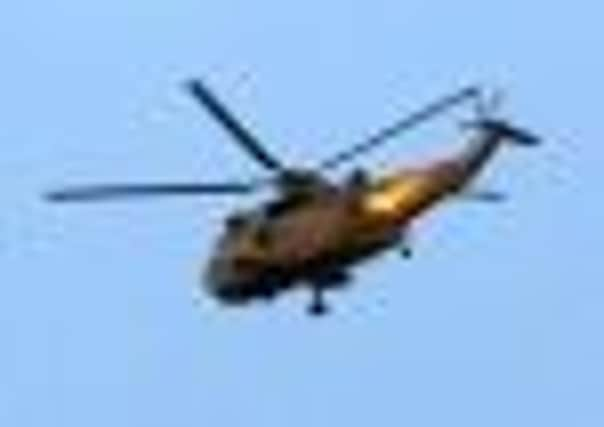Roger Cox: Despite deaths, climbers will forge on


On 13 January, a climber was killed in a fall in Coire an t-Sneachda in the Cairngorms; on 19 January, four climbers died in an avalanche on Bidean nam Bian in Glencoe; on 26 January a climber fell to his death on Ben Nevis; on 11 February a hillwalker was found dead in the Jacob’s Ladder area of the Cairngorms; and on 14 February three climbers were killed in an avalanche in the Chalamain Gap, also in the Cairngorms. These people deserved to be remembered as folk who died doing something they loved, but instead certain sections of the media seem to have used their deaths as an excuse to stage a spurious debate about restricting access to the hills in winter, calling their motivations into question in the process.
In a feature on winter mountain safety which aired on the 13 February edition of Newsnight Scotland, the journalist and former MSP Dorothy Grace Elder made the somewhat hyperbolic prediction: “there will be more human sacrifices for the rather selfish extreme pleasure of a few”. She was correct, of course, in the sense that three more people would die in the mountains the following day. But surely the seven people who had been killed up to that point – and, by implication, the three who died on Valentine’s Day – deserved better than to be described as “selfish” on national TV?
Advertisement
Hide AdElder’s subsequent calls on the Think Scotland website for the Scottish Parliament to stop “shying away” from dealing with this “one particular form of death” and look into restricting access to Scotland’s mountains seemed to find precious few supporters elsewhere in the commentariat, and mostly succeeded in provoking a multitude of angry responses from the climbing community. But the media echo chamber works in mysterious ways, and somehow the idea that “something must be done” started to gain currency, albeit at an almost subliminal level. Journalists may not have been falling over themselves to endorse Elder’s views, but some started to talk about the issue as if, all of a sudden, there might be a genuine argument to be had about restricting access to the hills. Here’s the Beeb’s Scotland correspondent James Cook, reporting from the Cairngorms after the avalanche in the Chalamain Gap:
“It might seem strange but even after nine deaths in the Scottish mountains this year, there is little appetite here for anything to change. Those who go up into the mountains say they know the risks and are prepared to continue taking them.”
Or, in other words: people who have been doing an inherently risky activity for years, when confronted with yet more evidence that the activity is risky, say they’re going to keep on doing it. What’s so “strange” about that? The same could be said of smokers or people who drink heavily, but talk of “restricting access” to booze and fags – much bigger killers than mountains – would be met with howls of derision from all sides.
Even if, in some nightmarish reversal of the hard-won Right to Roam, a law was passed that did restrict access to the mountains in winter, how could it possibly be enforced? There are 282 Munros, 222 Corbetts and 224 Grahams in Scotland. Would 728 rangers be hired to keep parties of climbers off these hills between the start of November and the end of March? Would one ranger per peak be sufficient? Nowhere near. Let’s say a minimum of two rangers per hill, and perhaps as many as five or six at popular spots like Ben Nevis. A couple of quick sums on the back of an envelope should have alerted the Newsnight team to the fact holding a debate about restricting access to the hills was going to make them appear very foolish indeed. The show’s presenter Gordon Brewer did attempt to skirt around this rather obvious problem in his preamble to the programme, when he said: “After the latest deaths in the hills, we discuss whether the time has come to restrict access to some of Scotland’s best-loved but most dangerous ranges” (my italics). But does anyone seriously think restricting access to, say, Ben Nevis, Glencoe and the northern Cairngorms, would cause all winter mountaineering in Scotland to cease? Climbers tend to be pretty determined people, in my experience. They’d simply go elsewhere.
From where I’m sitting this whole “debate” smells suspiciously manufactured. Brewer went on to talk rather nebulously about “calls from some quarters to restrict access to the mountains” but the various high-profile members of the Restrict Access Now lobby were never actually named. Apart from Elder, of course – and to be fair even she seemed a little reluctant to nail her colours to the mast live on air. When Brewer asked her “what do you want?” she didn’t say “restricted access to the hills” but instead argued for the Mountaineering Council of Scotland to be more explicit about the risks of winter climbing on its website. The case for improving education – particularly among people who only visit Scotland’s hills infrequently – is one that’s actually worth making. But, “mountain deaths lead to calls for better education” was hardly going to keep viewers enthralled. And so the ten who died became casualties twice over – first of a series of terrible accidents; then of a battle for TV ratings.